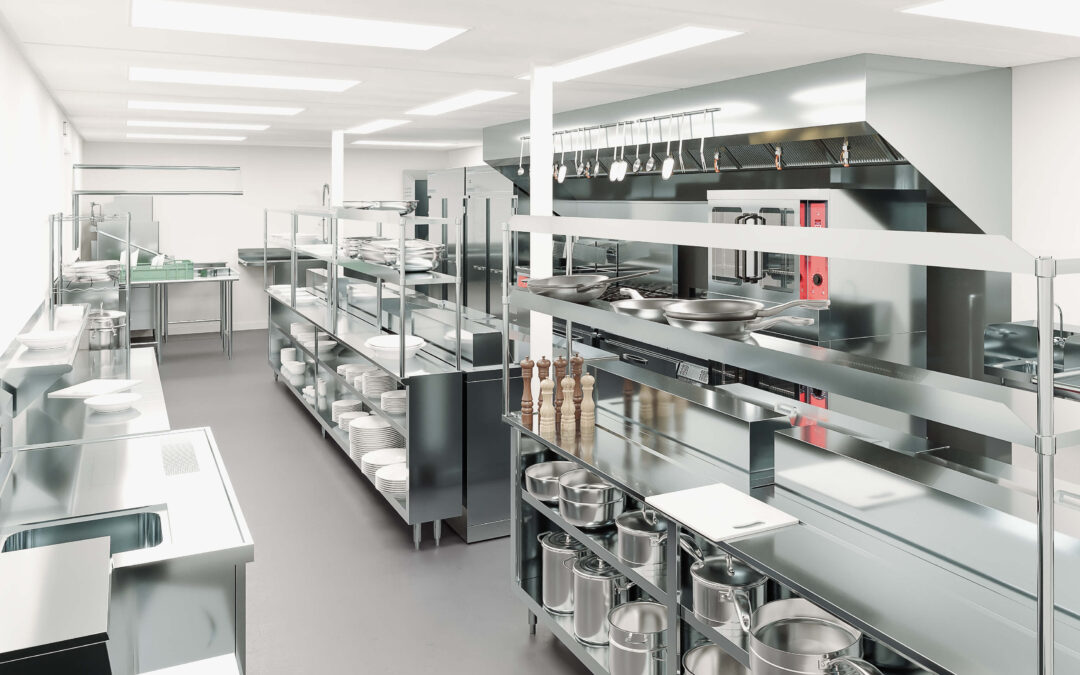In the dynamic and competitive world of food service, the efficient management of restaurant equipment is essential for success. From commercial kitchens to dining areas, every piece of equipment contributes to the smooth operation and profitability of a restaurant. However, as restaurants evolve and equipment needs change, conducting regular appraisals of restaurant equipment becomes imperative. In this article, we’ll delve into the significance of restaurant equipment appraisal, its benefits, and the appraisal process.
Understanding Restaurant Equipment Appraisal:
Restaurant equipment appraisal involves the thorough evaluation and assessment of all equipment used in food service operations. This includes kitchen appliances, refrigeration units, cooking utensils, furniture, and other essential items. Appraisals aim to determine the current market value, condition, functionality, and potential depreciation of restaurant equipment.
Importance of Restaurant Equipment Appraisal:
- Financial Planning and Decision-Making:
Restaurant owners and managers rely on accurate financial data to make informed decisions. Appraisals provide insights into the value of restaurant equipment, aiding in budgeting, purchasing, leasing, or selling decisions. Whether planning for equipment upgrades or assessing the feasibility of expansion, appraisals offer valuable information for financial planning. - Asset Management and Optimization:
Efficient asset management is crucial for maximizing operational efficiency and minimizing costs. Appraisals help restaurant owners identify underutilized equipment, assess maintenance needs, and plan for replacements or upgrades. By optimizing the use of restaurant equipment, businesses can enhance productivity and reduce downtime. - Insurance Coverage and Claims:
Adequate insurance coverage is essential to protect restaurants against unforeseen events such as accidents, theft, or natural disasters. Appraisals provide documented evidence of the value of restaurant equipment, facilitating insurance coverage assessments and claims processing. In the event of damage or loss, having accurate appraisal reports can expedite the claims settlement process. - Compliance and Safety:
Restaurants must adhere to safety and regulatory standards to ensure the well-being of employees and customers. Appraisals help identify equipment that may pose safety risks due to age, wear and tear, or non-compliance with regulations. By addressing equipment deficiencies proactively, restaurants can mitigate risks and maintain a safe working environment. - Business Valuation and Transactions:
In cases of mergers, acquisitions, or business valuations, the value of restaurant equipment contributes to the overall assessment of the business’s worth. Appraisals provide valuable data for potential investors, lenders, or buyers, helping negotiate fair transactions and investments.
The Appraisal Process:
- Inventory and Documentation:
Compile a comprehensive inventory of all restaurant equipment, including descriptions, specifications, purchase dates, and maintenance records. - Physical Inspection:
Conduct on-site inspections to assess the condition, functionality, and cleanliness of each piece of equipment. - Market Analysis:
Research market trends, demand, and pricing for similar restaurant equipment to determine its fair market value. - Valuation Methodologies:
Utilize appraisal methodologies such as cost approach, market approach, or income approach to determine the value of restaurant equipment. - Report Generation:
Compile the findings of the appraisal into a detailed report, including descriptions, photographs, valuation methodologies, and conclusions. - Review and Certification:
Ensure the accuracy and reliability of the appraisal report through review by certified professionals or appraisal organizations.
Conclusion:
Restaurant equipment appraisal is an essential practice for maximizing the value and efficiency of food service operations. By providing accurate valuation and comprehensive assessment, appraisals enable restaurant owners to make informed decisions, optimize asset management, and ensure compliance with regulatory standards. In a competitive industry where operational efficiency directly impacts profitability, the importance of restaurant equipment appraisal cannot be overstated. It is a proactive measure that empowers restaurant businesses to thrive and succeed in an ever-evolving market.

